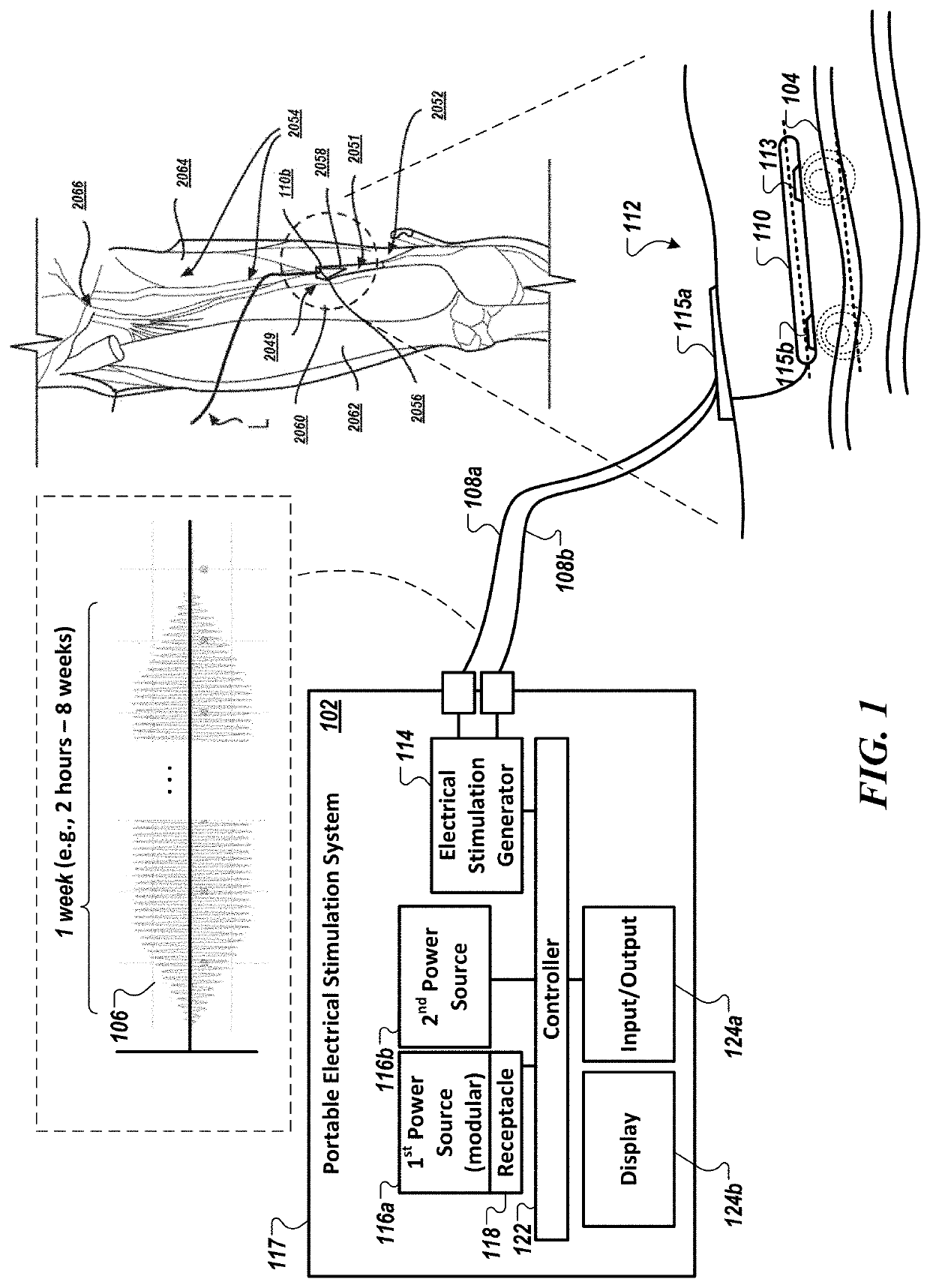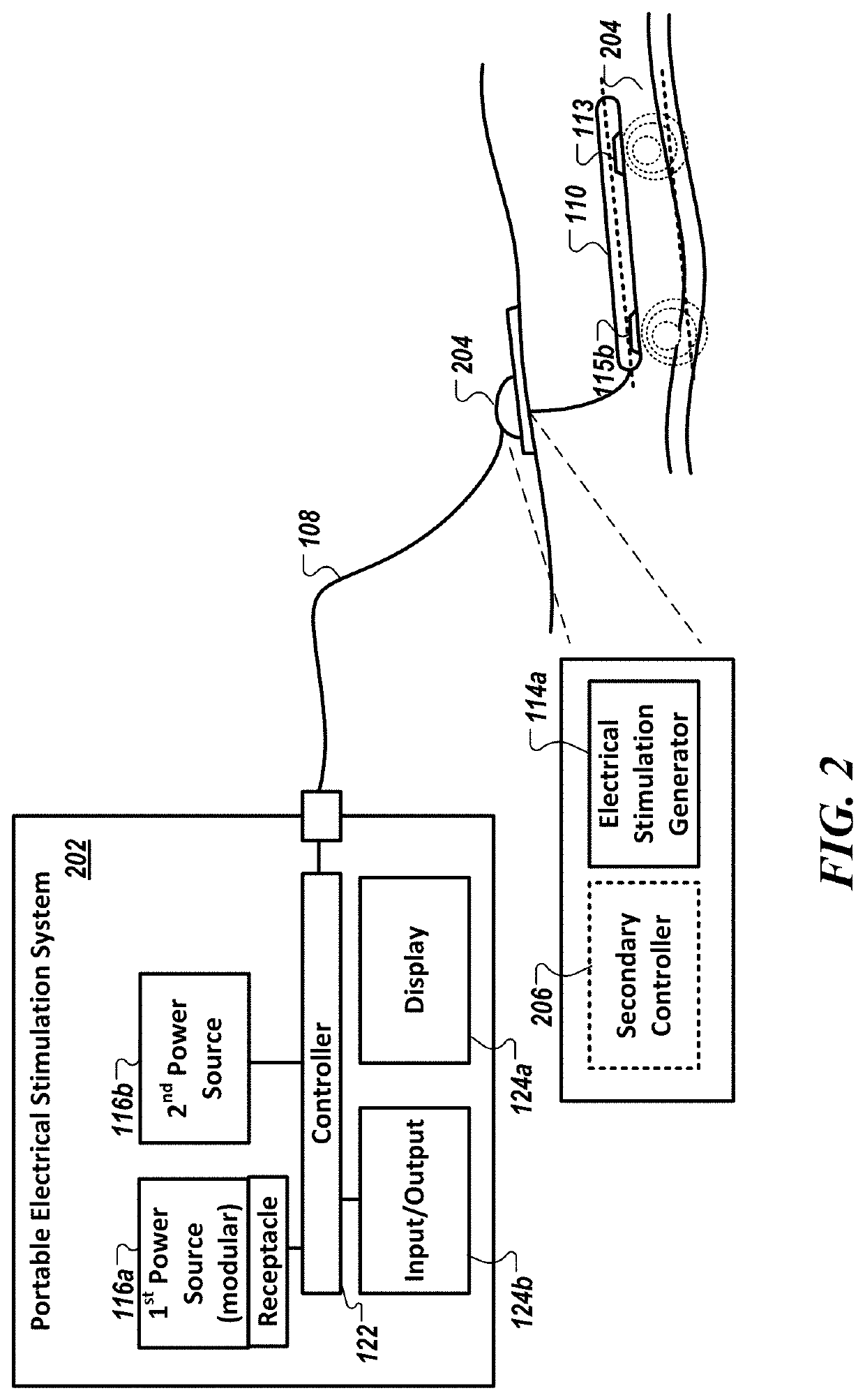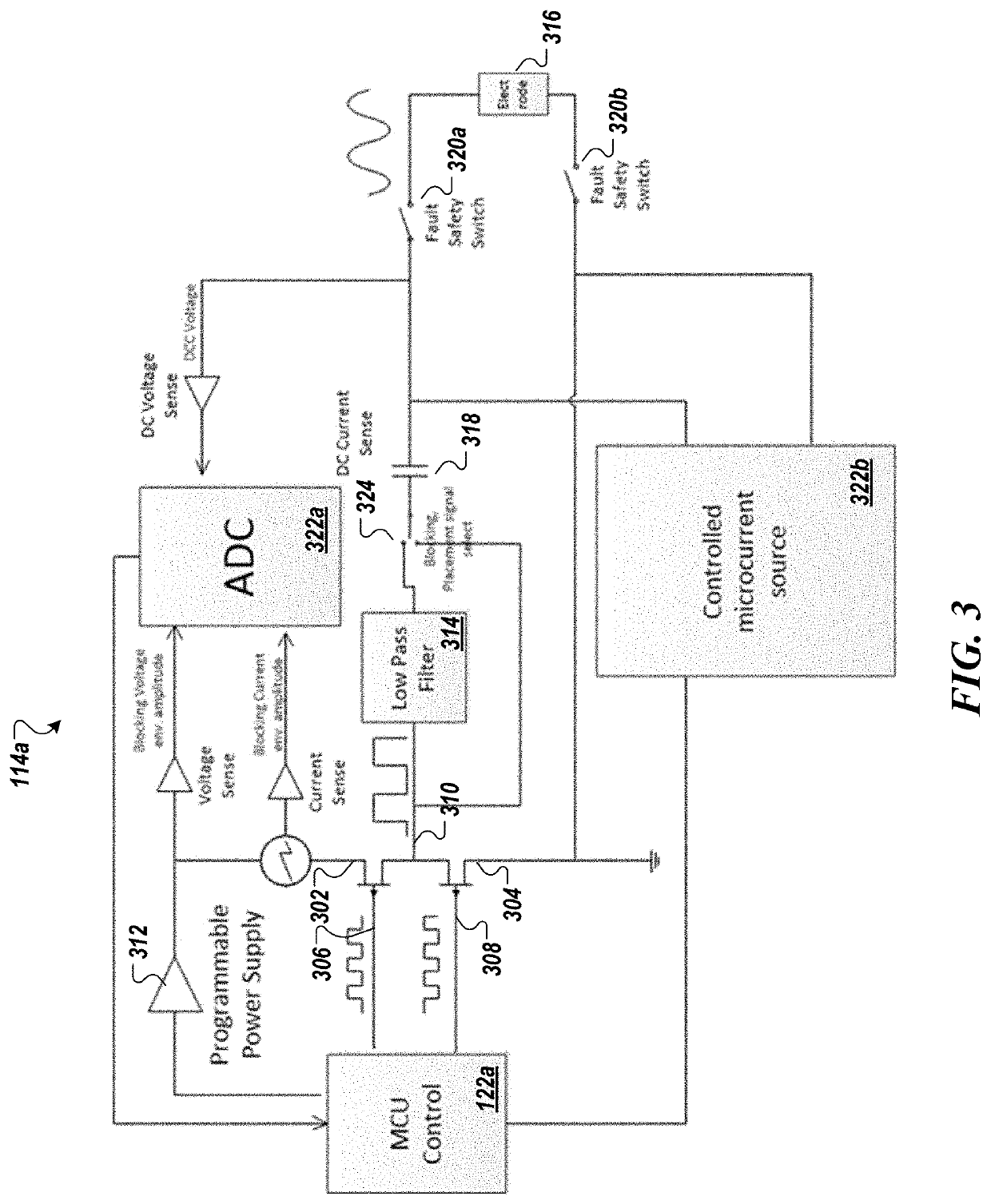Portable electrical stimulation system and method
a technology of electrical stimulation and portability, applied in the field of portability electrical stimulation system and method, can solve problems such as preventing conduction, and achieve the effect of being easily positioned
- Summary
- Abstract
- Description
- Claims
- Application Information
AI Technical Summary
Benefits of technology
Problems solved by technology
Method used
Image
Examples
example # 1
Example #1
[0146]FIG. 12 demonstrates a sensory response in an able-bodied subject to a percutaneously delivered high-frequency electrical stimulation. The sensations are consistent with the onset response elicited by high-frequency stimulation of a sensory nerve. An S8 (Abbott) electrode was used to stimulate the saphenous nerve at a site 5-to-10 cm proximal to the ankle. The stimulation consisted of a constant-current, 10 kHz sinusoidal waveform, and it was delivered for a period of 20 seconds at various amplitudes, including 4 mA (A—see reference number 1204), 6 mA (B—see reference number 1206), 10 mA (C—see reference number 1208), and 15 mA (D—see reference number 1210). The subject verbally described the quality of the evoked sensations (e.g. light-touch or pain) and indicated the intensity of the sensation on an 11-point scale: levels 1 and 2 defined tactile sensation, level 3 defined the pain threshold, and levels 4-10 indicated a mild-to-severe painful sensation.
[0147]In gene...
example # 2
Example #2
[0156]To determine if the onset response experienced when a 15-mA stimulation was delivered to the saphenous nerve could be minimized or eliminated, various ramping conditions were tested where the amplitude was allowed to gradually increase to the 15-mA level rather than being immediately set to 15-mA, after which time the 15-mA stimulation was delivered for a time period of 20 seconds. Specifically, the data from the 15-mA stimulation from Example #1 where no ramping was utilized was compared to two different ramping rates—(1) 1 milliamp / second and (2) 0.5 milliamps / second. The results are shown in FIGS. 13-14 and Table 2 below.
TABLE 2PeakSensationResponsePeakAmplitude(0 to 8AreaOnsetLatencyOffsetOnset-Amp(mA)Scale)(mA * s)(seconds)(seconds)(seconds)(mA)157.5458.740.392.5210.87NA(no ramp)(±0.27)(±4.82)(±0.03)(±0.67)(±0.36)150.817.085.8916.5620.675.3(1 mA / s ramp)(±0.02)(±0.94)(±0.38)(±2.35)(±1.78)(±0.26)
[0157]Table 2 shows an average sensory response to a 20-seconds 10 kH...
example # 3
Example #3
[0161]The following results shows the ability to block acute pain sensations with high-frequency electrical stimulation delivered in a percutaneous fashion.
[0162]FIG. 16 is a diagram of experimental results illustrating sensory responses to a sinusoidal waveform at various levels delivered percutaneously to the saphenous nerve, while pain inducing electrical stimulation was concurrently applied to the subject. Specifically, FIG. 16 demonstrates the effect of high-frequency electrical stimulation in blocking acute pain sensations in 2 able-bodied subjects.
[0163]In FIG. 16, a conventional electrical stimulation (9 pulses train, 500 Hz, 1 millisecond pulse width, about 28 mA amplitude, inter-train interval of 4 seconds) was again delivered to the subject's foot over-top of the saphenous nerve to elicit painful sensations to simulate / cause acute pain. Then, a high-frequency electrical stimulation was percutaneously delivered to the saphenous nerve at a site proximal to the ank...
PUM
 Login to View More
Login to View More Abstract
Description
Claims
Application Information
 Login to View More
Login to View More - R&D
- Intellectual Property
- Life Sciences
- Materials
- Tech Scout
- Unparalleled Data Quality
- Higher Quality Content
- 60% Fewer Hallucinations
Browse by: Latest US Patents, China's latest patents, Technical Efficacy Thesaurus, Application Domain, Technology Topic, Popular Technical Reports.
© 2025 PatSnap. All rights reserved.Legal|Privacy policy|Modern Slavery Act Transparency Statement|Sitemap|About US| Contact US: help@patsnap.com



